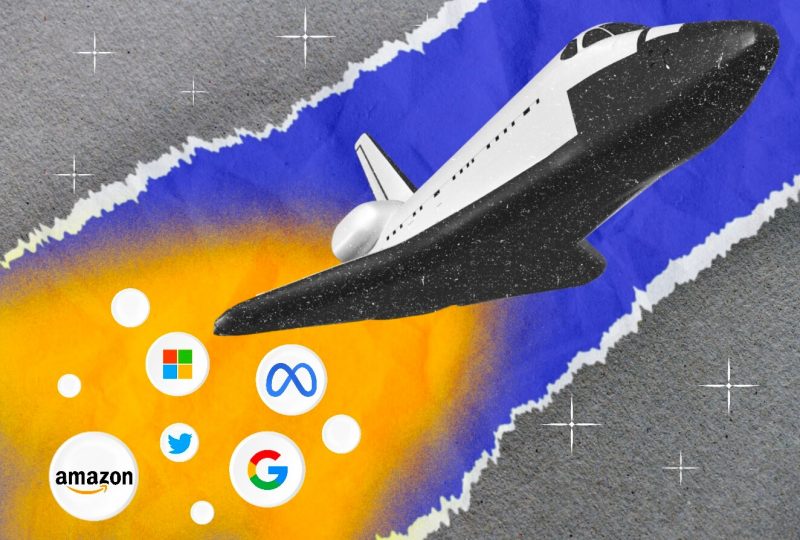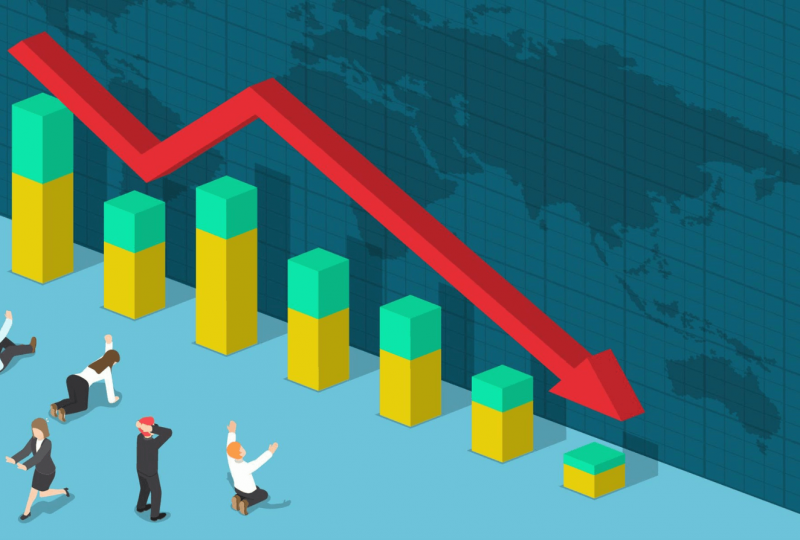What Made Big Tech the New Defensive Stock Play? Here Is an Answer.
Mar 20, 2023

Crises bring together odd bedfellows. Just look at the new class of defensive equities, which includes Big Tech, consumer staples, utilities, and healthcare.
The Technology Select Sector SPDR exchange-traded fund (XLK) was the market's top performer last week, climbing 6.3%. Communication Services Select Sector SPDR ETF gained 6.1%. (XLC). Utilities Select Sector SPDR ETF (XLU), which is defensive, increased by 4.1%, and Consumer Discretionary Select Sector SPDR ETF (XLY) increased by 3.6%.
The heavy lifting was done by technology. Considering sector distinctions, XLC comprises Big Tech stocks like Google parent Alphabet (GOOGL) and Facebook parent Meta Platforms (META), which gained 12.8% and 10% this past week. In contrast, XLY is home to Tesla (TSLA) and Amazon.com (AMZN), which gained 10.1% weekly.
This week, three of the four best-performing sectors are tech-related, despite large market swings caused by banking concerns sending investors seeking refuge in relatively safe havens. Apart from utilities, the Health Care Select Sector SPDR ETF (XLV) increased by 1.7%, and the Consumer Staples Select Sector SPDR ETF (XLP) increased by 1.5%, making them the fifth- and sixth-best performers, respectively. Similarly, gold prices rose just under 6%, marking the highest one-week percentage rise in nearly three years, while silver prices rose similarly.
Contrary to what investors have grown accustomed to, this: Like in many earlier bear markets, riskier growth-oriented industries like technology took a beating in 2022 as investors flocked to everyday Steady Eddie performances.
That also makes sense given that, in contrast to start-ups, Big Tech giants like Apple (APPL), Google, and Microsoft (MSFT) are sitting on enormous cash hoards that make them far less susceptible to what might be a balance-sheet slump. One of the appeals of defensive investments like utilities and staples is that the first two also offer a modest dividend, which was long despised by the IT industry.
However, the financial problems don't appear to threaten their core industries. John Vinh, an analyst at KeyBanc Capital Markets, said on Friday that sales of iPhones and other Apple goods in February were slightly above average seasonality due to sustained demand and improving supply.
The turbulence shouldn't substantially impact the online media or advertising companies we cover, according to a previous report by Morningstar analyst Ali Mogharabi, and we aren't changing our estimates of their fair value for these equities.
Given that venture capital investment for start-ups is anticipated to resume next year, he points out that a reduction in Google's cloud storage income would probably be less than 10% and have little effect on the company's total profitability.
At the same time, this dynamic — which has given Big Tech such a boost — is also noticeably favorable for consumer basics, which is unusual.
Staples profits from the traditional flight to safety, but they also gain from the fact that, unlike some of its disrupter rivals, they have no affiliations with problematic institutions like Silicon Valley Bank.
According to Mizuho Securities analyst John Baumgartner, a fair number of industry start-ups were exposed to SVB, and, in addition to the associated short-term disruption, tighter subsequent lending standards and a stronger emphasis on free cash/profitability can be expected to further limit the ease with which small companies can gain financing and enter the industry.
At the very least, the last several years have taught investors to be prepared for the unexpected. At the moment, only iPhones and ice cream are giving refuge from the storm.




